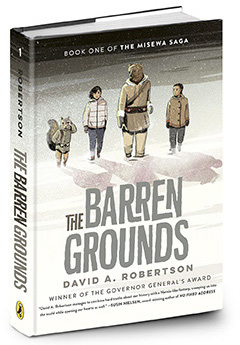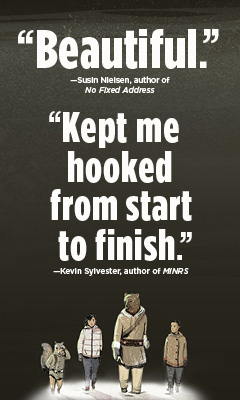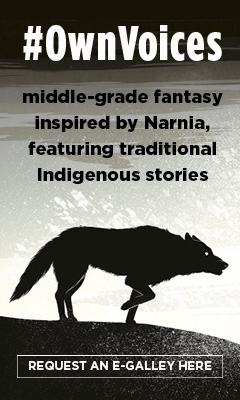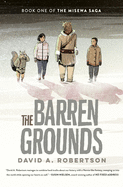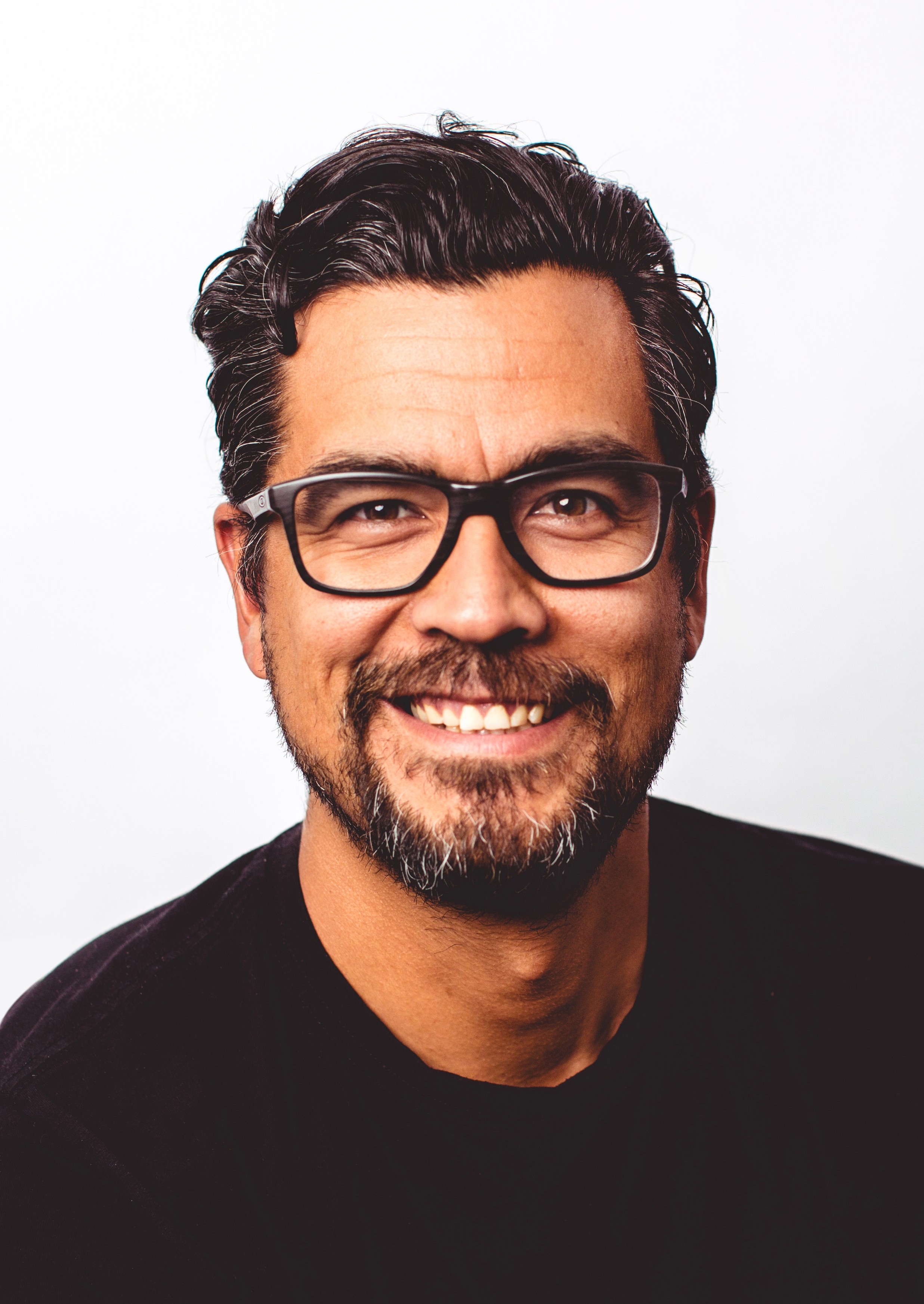The Barren Grounds: The Misewa Saga, Book 1
by David A. Robertson
David A. Robertson, a citizen of the Norway House Cree Nation, has written picture books, adult graphic novels and a YA trilogy. He wanted to write a "Narnia-inspired middle-grade fantasy series that would draw on traditional stories of the sky and the constellations." The Barren Grounds is that clever, affecting fantasy adventure. The first in a planned trilogy, The Barren Grounds offers young readers a heroic quest styled like those found in Susan Cooper's The Dark Is Rising series, Brian Jacques's Redwall series and, of course, the Chronicles of Narnia.
Morgan is having difficulty bonding with her Cree foster sibling. Twelve-year-old Eli is quiet and small for his age and spends most of his time sketching in an oversized drawing pad. It's not his sober personality that Morgan finds distancing, though. Indigenous herself, Morgan was put into foster care at such a young age she has almost no memories of her family. Eli is new to the foster care system and has a strong connection with his heritage--he even still speaks the Swampy Cree dialect of his community. Additionally, Morgan's many years in foster care have left her untrusting and angry. Her new foster parents, Katie and James, are white and seemingly well-meaning, but their every misstep leaves Morgan furious. So Morgan acts out and, at 13, she knows what happens to problem foster kids--they get sent to new homes. She's angry, she's terrified and she feels obligated to watch out for Eli, who reminds her of herself when she was younger: "At a new house, before new houses became a part of her life."
After a particularly intense day in which Morgan blows up at Katie and James for buying her a pair of "Manitobah Mukluks" as a celebratory gift for her two-month anniversary in their home, Morgan invites Eli to join her in her secret hiding place (a corner of the unfinished attic). As Eli settles in, Morgan discovers that she likes this spot being "no longer a place just for her"--she hopes she's making Eli feel a little bit less alone and scared. While Eli sketches, Morgan feels a cool wind and sees in his drawing a strangely familiar winterscape with an "animal being" walking away from a village. Eli explains to her that the animal is a fisher, something he used to see when hunting back home. Morgan thinks there's something creepy about the animal: it feels as if "the creature's black eyes [are] watching" her. And when they hang the completed picture on the wall, "the blizzard in the drawing, once just pencil lines, storm[s] into the attic room." The illustration now serves as a portal to another world.
Through the portal is the Barren Grounds, where Ochek, the fisher, finds the children and brings them back to "the only surviving village in the North Country," Misewa (Cree for "all that is"). Ochek tells the children that his world is dying. A human man was taken in by the sentient, upright-walking animals of the world but he grew greedy. He convinced Tahtakiw (Crane) to run away with him and take all the "summer birds" along. Without the summer birds, there is no Green Time. So now, in this endless White Time, the animal beings of Misewa are slowly starving. Eli persuades Morgan to join him, Ochek and new friend Arikwachas (Arik for short) the squirrel on a journey to find the man and bring the summer birds back to the North Country.
Robertson populates his world with creatures and ideas from Indigenous stories of the stars. The fisher--Ochek himself, the children's first connection to Misewa and their guide--is the same constellation that many know as the Big Dipper. In the Northern Hemisphere, the Big Dipper can be seen at any time of year and, throughout the book, a Fisher constellation marks the end of each section. The Chief of Ochek's tribe, Muskwa (Bear), is akin to the constellation Mista Muskwa, who sits atop the Big Dipper. And Tahtakiw is a summer constellation--the Crane can be seen only from June to December. Quite simply: no Crane, no summer.
Robertson's significant talent is on display in The Barren Grounds as he weaves together European fantasy tropes, Indigenous stories of the constellations and issues both contemporary and deeply personal. Morgan's connection to her past is tenuous; she longs for a home but rejects James and Katie's attempts to give her one. Eli, meanwhile, mourns the loss of his family, community and culture and finds in Misewa and Ochek his first language and old way of life. Morgan, to her surprise, finds pieces of herself in Misewa, too.
Like C.S. Lewis with his Chronicles of Narnia, Robertson lives in the world of allegory in The Barren Grounds. While Robertson's work features no Christ figure, it does clearly have a white man who takes too much from the land and its Indigenous people, and then betrays them, erasing their myths and leaving them to die. It's the kind of excellently portrayed good and evil fight one sees in "classic" fantasy: good must win, of course, but at what cost? And there is something deliciously canny about Robertson's use of European fantasy tropes to give voice to an Indigenous story, especially since so many Indigenous stories have been silenced by European influence.
The Barren Grounds is a middle-grade fantasy with real stakes and true emotions. It's a journey that allows for both readers and characters to grow from start to finish. And, while this particular adventure wraps up cleanly, readers will be happy to know there are more stories set in the world of Misewa to come. --Siân Gaetano, children's and YA editor, Shelf Awareness



